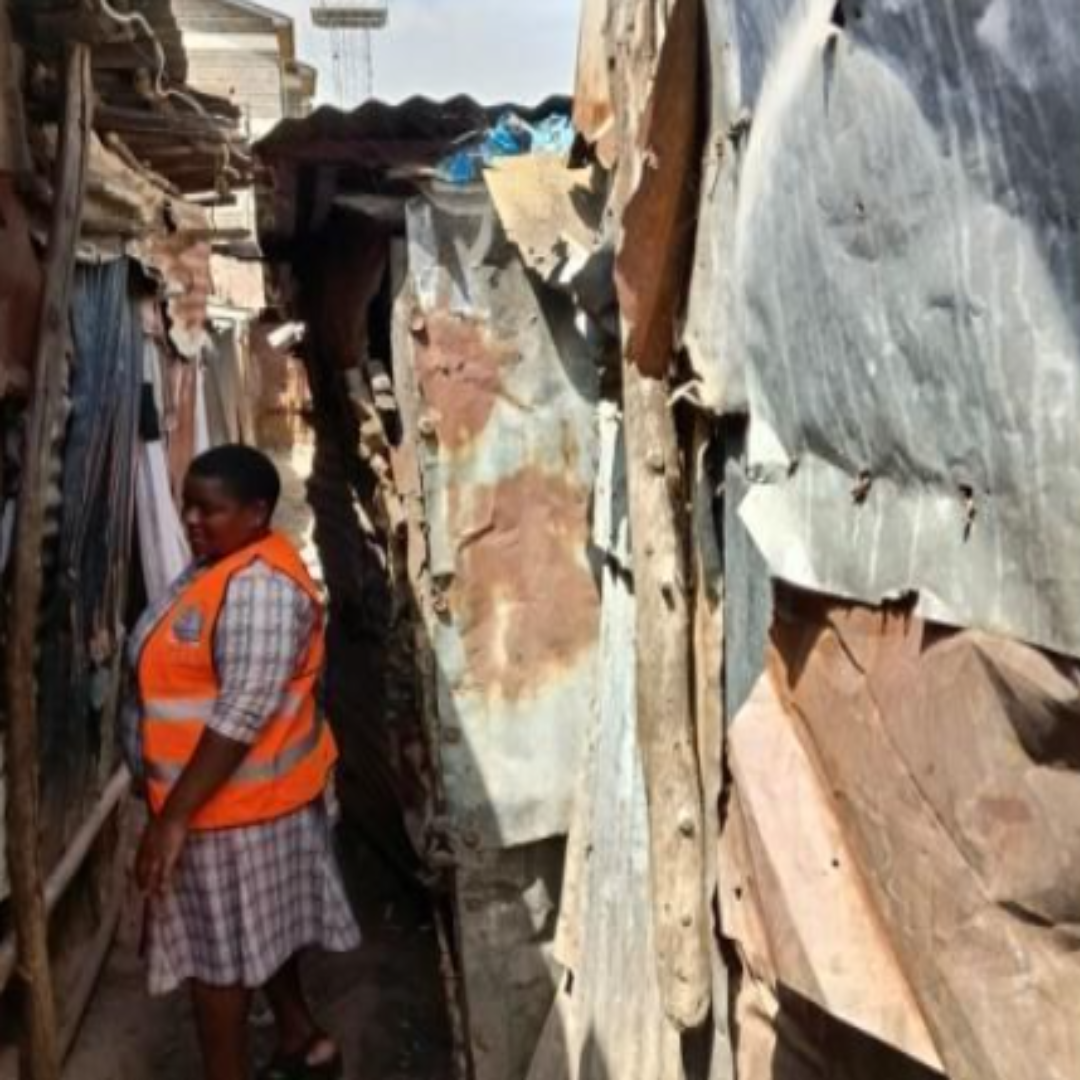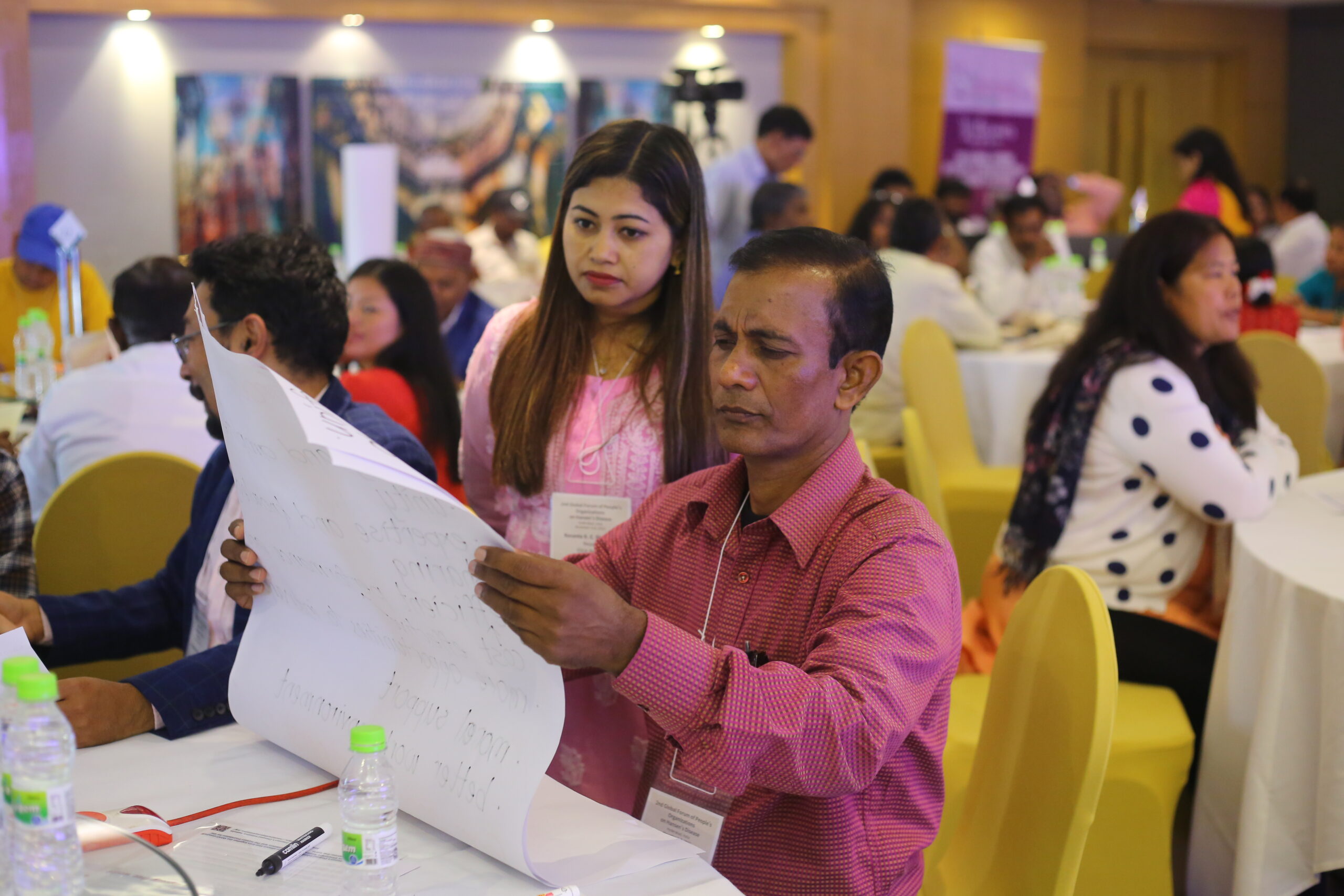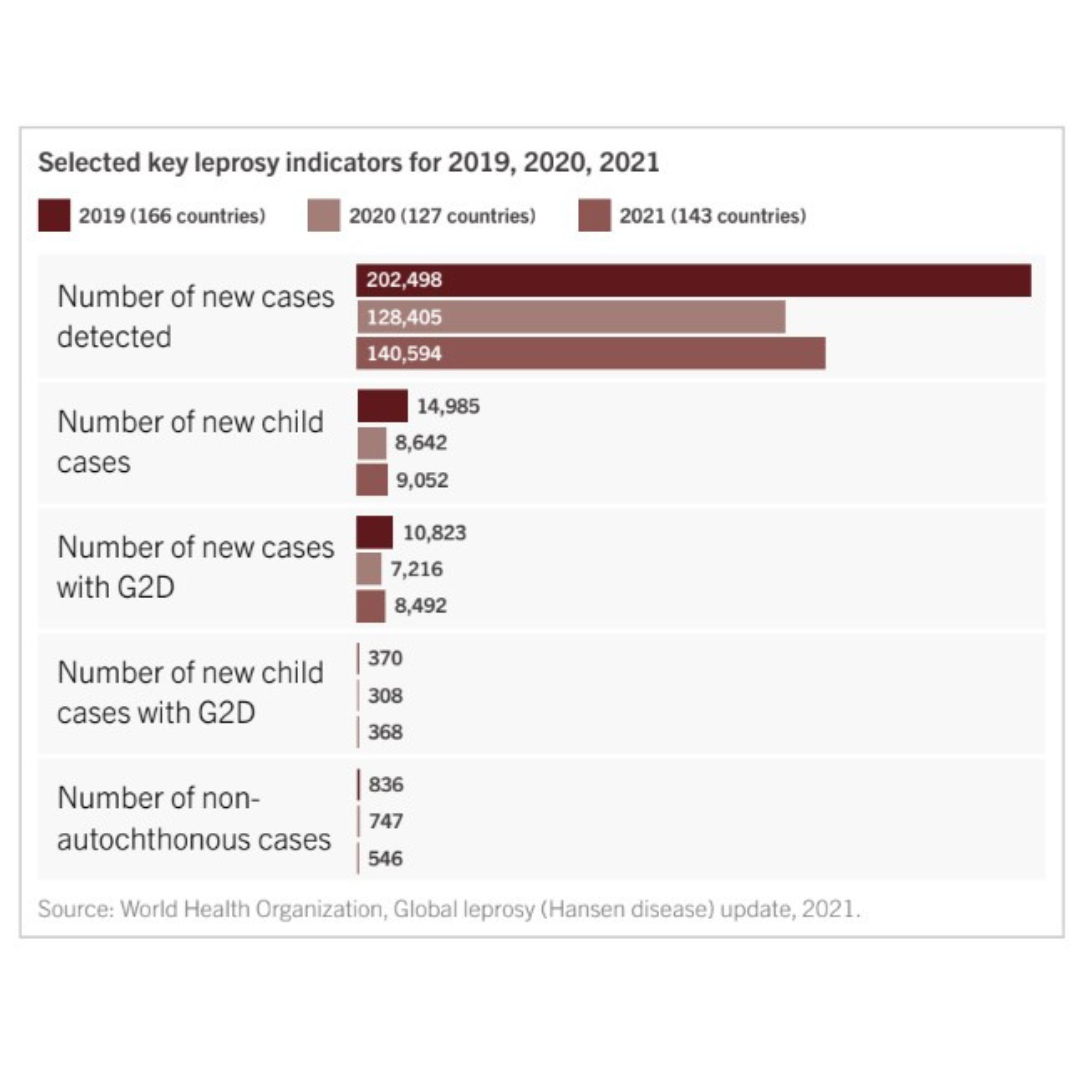The 22nd International Leprosy Congress (ILC) was held in Bali, Indonesia, July 7–9, 2025. The Sasakawa Health Foundation (SHF) hosted four sessions during the event, which were led by Dr. Alice Cruz, SHF Program Advisor for Human Rights Issues; Dr. Venkata Ranganadha Rao Pemmaraju, SHF Program Advisor for Medical Issues; and Mr. Tesfaye Tadesse Haile, SHF Coordinator for Programs in Africa. Dr. Cruz and Dr. Pemmaraju wrote summaries of the sessions, highlighting points that they consider to be especially important.
Session: “Maximizing the capacity and participation of organizations of persons affected by leprosy in Africa”
✍ Contributed by Dr. Alice Cruz
In late 2024, SHF launched a program for supporting organizations of persons affected by leprosy in Africa. The program has two objectives: 1) to provide a platform for training leaders who can effectively manage the organizations and 2) to enhance the organizations’ capability and sustainability. As the former manager of the Ethiopian National Association of Persons Affected by Leprosy (ENAPAL), Mr. Tesfaye brings years of relevant experience to his role as coordinator of the program.
At the ILC, Mr. Tesfaye chaired and facilitated a session where he explained that in the months before the program launched, he conducted field visits to Tanzania, Sierra Leone, Senegal, Kenya, Nigeria, Ghana, and Mozambique. He also conducted online surveys with organizations in Nigeria, the Democratic Republic of the Congo (DRC), Niger, and Liberia. SHF decided to prioritize providing support for people’s organizations to strengthen their management capacities based on his findings.
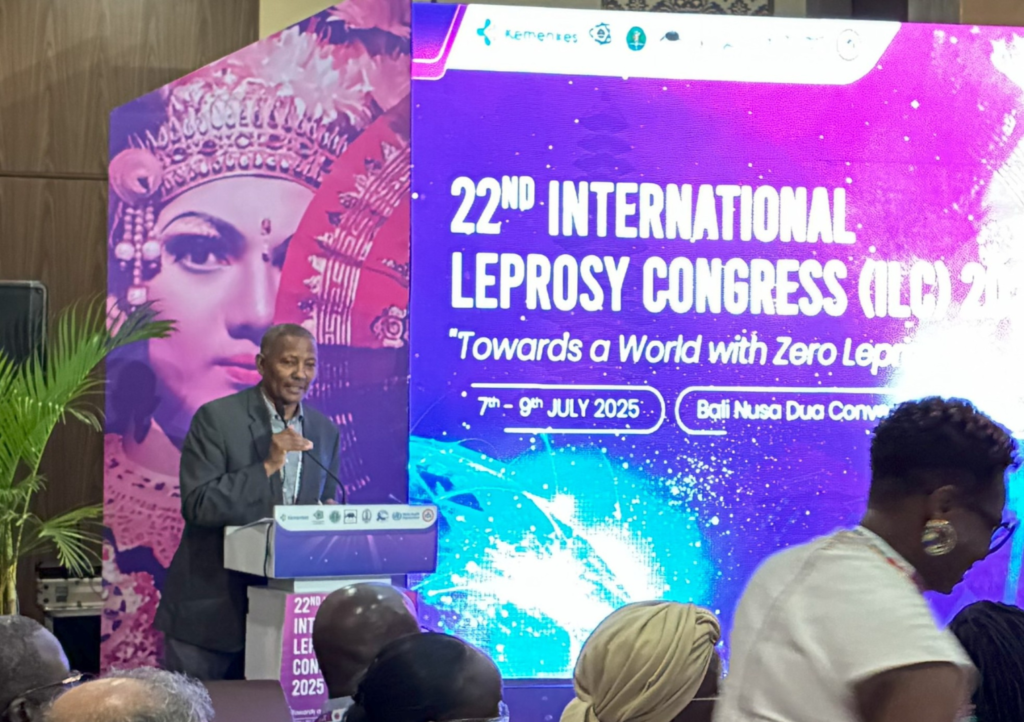
In March 2025, the program worked with the Senegalese Association Against Leprosy and Neglected Tropical Diseases (ASCL/MTN) to host a leadership level capacity-building workshop in Dakar, Senegal. Representatives from Purple Hope Initiative Nigeria (PHIN), National Association of Persons Affected by Leprosy–Sierra Leone (NAPAL-SL), and Tanzania Leprosy Association (TLA) joined ASCL/MTN for discussions and practical exercises about improving the administrative and financial management of their organizations and designing two-year projects. With SHF support, the projects that were proposed at the workshop will launch in September. Representatives of three of the organizations – NAPAL-SL, PHIN, and ASCL/MTN – joined Mr. Tesfaye at the ILC to share their proposals.
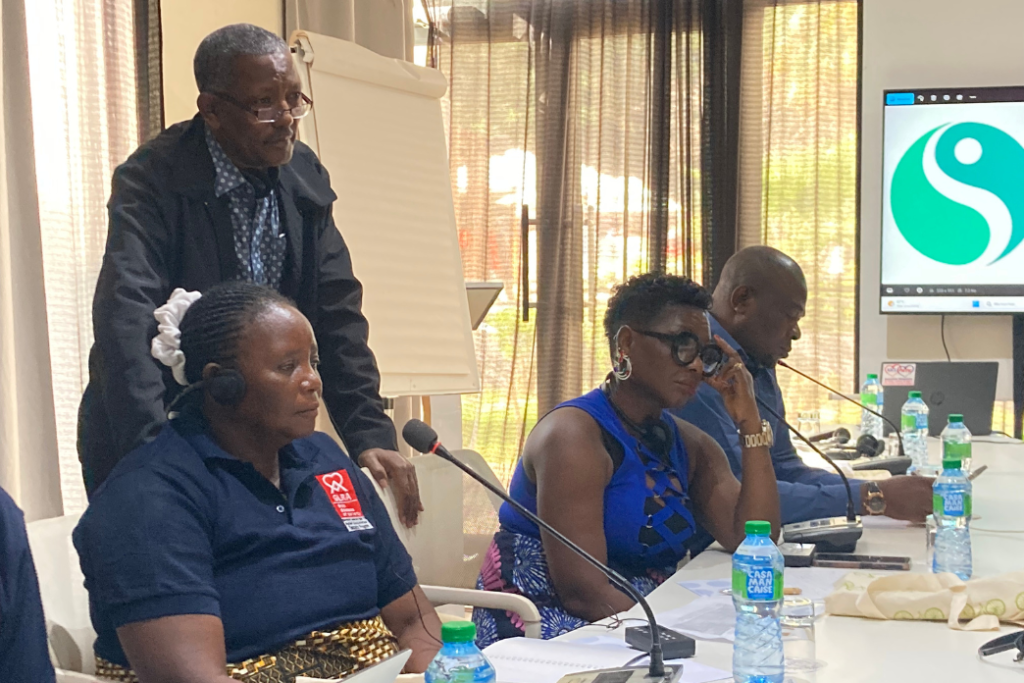
NAPAL-SL’s project, “Capacity building for better performance,” seeks to improve organizational management capabilities by focusing on efficiency and effectiveness.
“Strengthening organizational capacity of PHIN for effective service delivery in Nigeria” addresses the need for training opportunities in practical skills such as developing a five-year strategic plan, writing reports and manuals, and creating an office environment conducive to work.
ASCL/MTN made an important observation about the persistence of barriers to effective participation and intervention in society experienced by organizations of persons affected by leprosy. They identified key areas that require more investment to ensure that participation is both enabled and impactful: capacity-building, access to funds, and integration in policy-making.
Session: “Monitoring discrimination and taking evidence-based action against it”
✍ Contributed by Dr. Alice Cruz
In a landmark moment, two persons affected by leprosy presented the results of their organizations’ emancipatory research projects. The projects were conducted in the context of a program organized by SHF aimed at facilitating the production of action-oriented knowledge and evidence-informed advocacy. Emancipatory research is a participatory and transformative approach, grounded in the traditions of critical theory and the disability rights movement, that seeks to empower marginalized and disadvantaged groups by involving them as active collaborators in all stages of research. SHF’s program drew on this framework while also going further to guarantee that persons affected by leprosy owned the research from beginning to end.
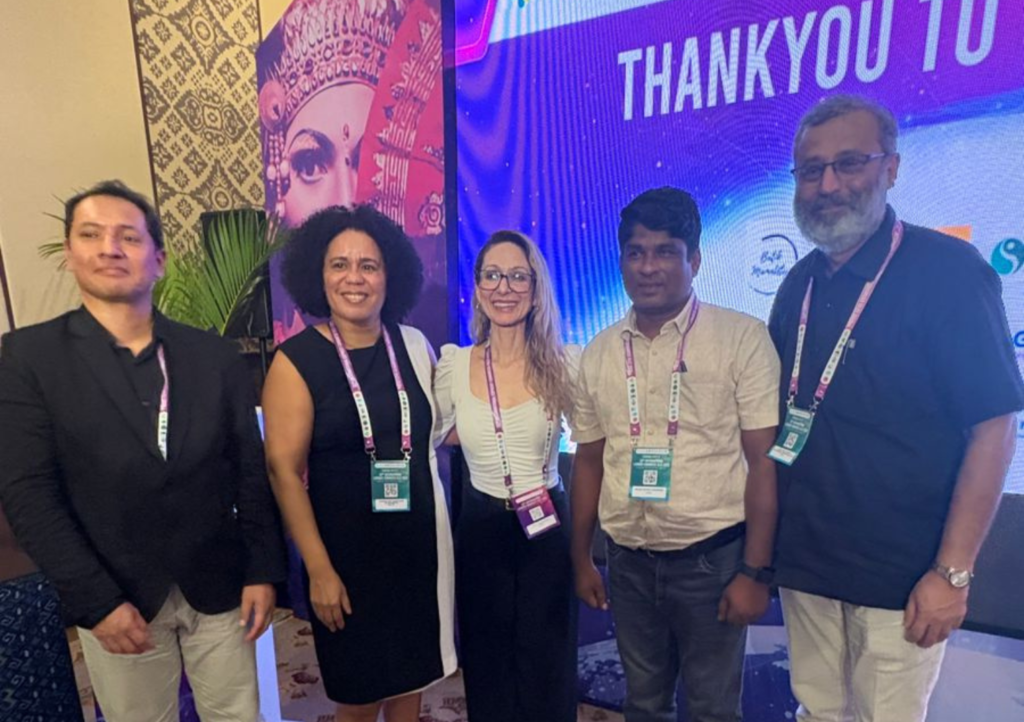
The program’s principles assert that persons affected by leprosy and their representative organizations should be the primary producers of knowledge and not just co-producers; any process aimed at knowledge production about persons affected by leprosy should always enhance their critical thinking and autonomic action; processes should emphasize strengthening the organizations, developing leadership skills among its members, and engaging new members; and outcomes should include practical steps aimed at solving the problems identified by research.
The two participating organizations of persons affected by leprosy, Saksham Kushthanteya Swabhimani Sanstha (SKSS)–India and MORHAN Piauí–Brazil, engaged in several collective discussions to design projects that that would be responsive to local priorities and achievable by members affected by leprosy.
SKSS, supported by ALERT-India, implemented a project titled “To Study the Impact of Stigma and Discrimination Due to Leprosy on Family and Marital Dynamics.” Presenter Mr. Milind Barsinge shared that designing and participating in the project strengthened member skills in planning, decision-making, and knowledge application; improved coordination with health systems and legislators; increased membership; and resulted in a 10-year strategic roadmap informed by their research.
MORHAN Piauí’s project, “Holding hands in search of knowledge and rights,” was presented by Ms. Francilene Mesquita. The project’s research team was composed almost entirely of women affected by leprosy. They focused on institutionalized and intersectional discrimination and developed their own methodology, which they called “escuta afetiva e qualificada” (listening with empathetic attentiveness and skill). Results showed that black women are disproportionately affected by discrimination on the grounds of leprosy and also that institutionalized discrimination persists, especially in healthcare and social protection services. The organization identified five main problems and then developed an advocacy roadmap based on solutions that emerged from discussions with participants.
Ms. Mesquita concluded with a powerful reflection: “In this project, people were not seen as patients nor as objects of study, but as equals.” I would add that these projects were not only successful in producing relevant knowledge for policy-makers; they were also deeply transformative of individuals, collectivities, and communities.
Session: “Leprosy in children – a critical component of leprosy elimination”
✍ Contributed by Dr. V R Pemmaraju
Approximately every tenth leprosy patient is a child, which reflects continued transmission of infection in the community. More concerning, 2023 global leprosy data indicated that over 250 children had grade 2 disabilities at the time that they received their diagnosis. Children, especially girls, also experience discrimination that stems from deeply ingrained negative social perceptions against leprosy.
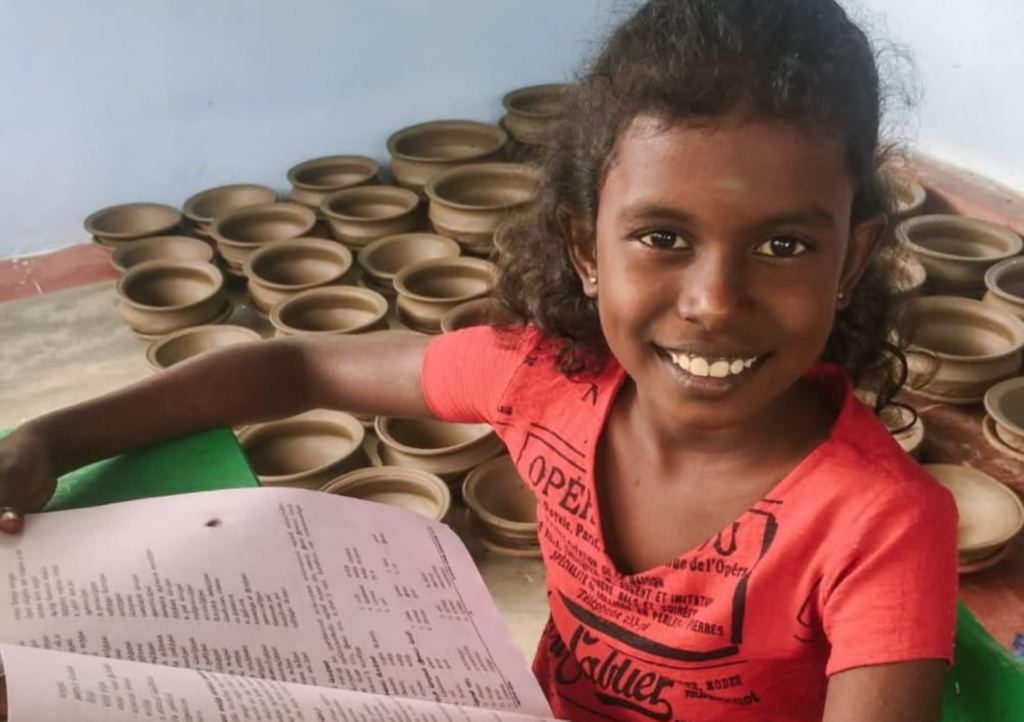
During the ILC session, Ms. Lebora from the Leprosy People Association (LPA) Sri Lanka provided an overview of the challenges related to reaching children for diagnosis and treatment. Many children have dropped out from school for fear of stigma. Health staff are not comfortable and confident about diagnosing leprosy in children. Ms. Erei Remon, manager of Kiribati’s national leprosy program, highlighted practical steps that her country has taken to diagnose every child in the islands early enough for treatment.
Dr. Saba Lambert, an eminent clinical researcher who chairs the WHO Technical Expert Group on Childhood Leprosy, and Dr. Vivek Lal, team leader of the WHO Global Leprosy Programme, emphasized evidence-based strategies: in particular, those aimed at improving diagnostics and providing child-friendly medicine formulations in order to improve compliance to multidrug therapy.
The examples from Sri Lanka and Kiribati suggest promising practices for national programs to adapt to their local context. The need for initiatives to protect the rights of children with leprosy emerged as an immediate priority. The presentations showcased synergy between persons affected and national governments in addressing the issue of leprosy in children.
Session: “Treatment of reactions and prevention of disabilities – an important aspect of management of leprosy”
✍ Contributed by Dr. V R Pemmaraju
Leprosy is a curable disease and treatment with multidrug therapy is uneventful in the majority of patients. However, immunological reactions occurring during the course of the disease can lead to physical impairments or serious complications. Though adequate data is not available globally, analysis of a small cohort of persons experiencing reactions found that a few of them had restricted life due to severe disabilities, some lost their lives, and the rest are showing side effects of steroid dependency.
SHF conducted a session to understand the problem from the perspective of the persons affected and to consult with experts to explore possible solutions. Mr. Al Kadri from the people’s organization PerMaTa Indonesia spoke of the suffering that some members are experiencing because of reactions. He noted that some persons affected by leprosy struggle to report their condition promptly to health staff and find it difficult to explain their reactions.
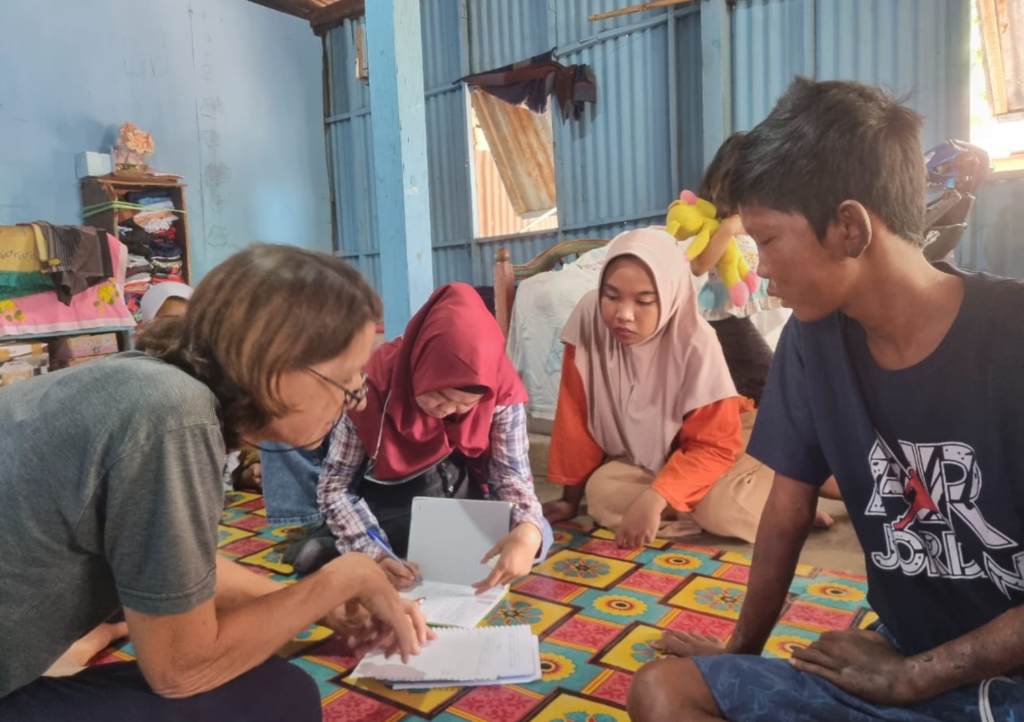
Dr. Teky Budiawan from Indonesia presented effective practices in treatment of reactions. Dr. Indira Kahawita, a world-renowned expert on the topic, emphasized the importance of a referral level institution, a center of excellence to cater for management of reactions. Dr. Vivek Lal from WHO presented evidence-based treatment protocols currently recommended for use in countries. The need for focusing on prevention of disabilities as part of the management of reactions was presented by Dr. Sathish Paul, an eminent physical rehabilitation expert.
The session was successful in bringing management of reactions to the attention of national programs and emphasizing the importance of timely and effective interventions and a continuum of care to prevent disabilities.







